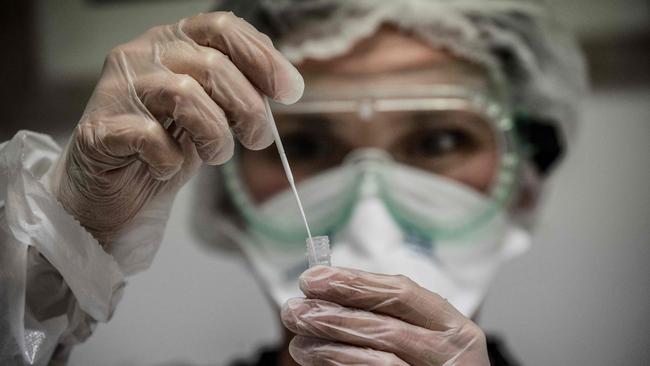Coronavirus: Why some contract lethal infections, others do not
New research has revealed why coronavirus kills some people but spares others.

Australian researchers have helped uncover why COVID-19 can be lethal, killing otherwise healthy people and sparing others.
New research reveals some people who contract the virus produce antibodies which suppress a set of “crucial” proteins used to protect the body from viruses.
The two new reports show the lack of proteins — called type-one interferons (IFNs) — is common among a group of coronavirus sufferers who contract a severe case of the disease.
One study found about one in 10 people with life-threatening COVID-19 pneumonia produced antibodies which targeted and neutralised the 17 key proteins.
“This study highlights the crucial role of type-one IFNs in protective immunity against SARS-CoV2,” the report read.

It found 10.2 per cent of 987 patients with life-threatening COVID-19 pneumonia had the neutralising auto-antibodies against type-one IFNs in their blood.
“Importantly, 95 per cent of these individuals were men, which might explain at least some of the sex differences we see in COVID-19 infection,” Murdoch Children’s Research Institute professor John Christodoulou said.
Stuart Tangye, of the Garvan Institute of Medical Research, said the research suggested a defect in type-one IFNs underpinned life-threatening COVID-19 pneumonia.
“These findings reveal type-one IFNs as a central requirement for strong immunity against SARS-CoV-2 infection and COVID-19,” he said.
“The findings raise the possibilities of exploring new potential treatments of COVID-19, such as diluting the effects of auto-antibodies … or infusing type-one IFNs as antiviral agents.”
The second study identified a group of people whose immune cells could not produce the proteins in response to the virus because of a genetic mutation.
The study included 659 patients who contracted life-threatening COVID-19 and found 3.5 per cent had genetic variants which prevented the ability of the immune system to produce or respond to type -one IFNs.
Professor Christodoulou said the varying impact of COVID-19 on different people was “puzzling”.








To join the conversation, please log in. Don't have an account? Register
Join the conversation, you are commenting as Logout